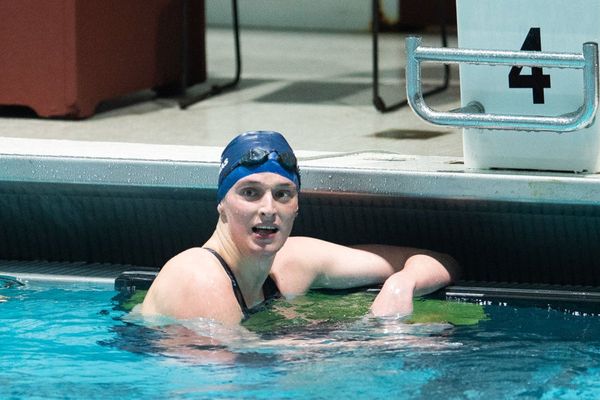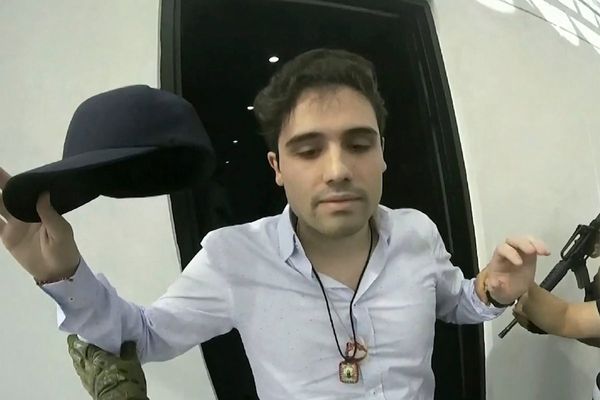
Daytime television is a foreign country to those who keep regular working hours, but that parade of holiday-home seekers, cowboy builders, amateur cooks and brightly-lit quizzers provides comfort and entertainment to millions. If it’s just the faint hum of a neon tube to you, casting its beam on other less busy folk, you may see it as undemanding trash. But if The Coroner (BBC1) is anything to go by, things are changing for the better.
There have been honourable exceptions before now, including criminally under-appreciated dramas such as the superb detective series Father Brown and Land Girls way back in 2009. But why would broadcasters fork out for daytime drama when they can have a dozen quiz and property shows for a quarter of the money?
For 15 years, the mainstay of BBC1’s daytime schedules has been Doctors, a medical soap, widely varying in quality and featuring the staff and patients of a fictional Midlands GP practice. While it continues, Sally Abbott’s new 10-part series slots in neatly after it for the next two weeks, offering something with a lot more substance.
Claire Goose’s south-Devon solicitor, Jane Kennedy, returns to her childhood home to become the town’s coroner, bringing her back in touch with former childhood sweetheart DS Davey Higgins (Matt Bardock). Jane and her daughter Beth (Grace Hogg-Robinson), the politest emo teen you could hope to meet, move back in with her mum, the excellent Beatie Edney who was so thoroughly enjoyable in Poldark. The main cast is perfectly rounded out by Mick, the pub landlord, played by the equally charismatic Ivan Kaye. The set-up allows for three substantial female leads and a Moonlighting-style detective duo, often pushing and pulling good-naturedly in opposite directions. So far, so neat.
The backstory is all in place when we meet the Kennedy family and hardly any of it is spoken aloud. The relationships are clear from the off and already infused with an unforced warmth. I like them all so much. Abbott sets and solves a mystery, accounts for every character, keeps the dialogue natural and exposition light while feeding that audience need for a likeable world to invest in, all in 45 minutes. It’s a feat of dramatic wizardry when you really consider what she’s packed into this tiny time frame.
The only flaw, and this feels like Craig Revell Horwood picking on the placement of a single finger during a perfect waltz, is the central conceit, which wobbles visibly at first, unless you really squint and try not to look at it. Jane’s opening case (we get one an episode) begins when a teenage Juliet knocks on her door and asks her to investigate the murder of her Romeo which looks, from the outset, like suicide. It’s such a stretch, not how any teenager would behave and not the province of a coroner to go banging on doors. But once you accept it (and I did willingly), the world of the show wraps around you in much the same way Lovejoy’s Suffolk did back in the 80s. How I miss Lovejoy. That combination of humour, warmth and dramatic tension is incredibly difficult to pull off without at least one element suffering. But Abbott has hit the sweet spot here when it comes to creating a world I want to believe and spend time in.
It’s so difficult to establish a new, popular drama, particularly in daytime, where budgets are tight and the brushstrokes must be kept reasonably broad. But this series feels like an old friend already.
Meanwhile, Ben Whishaw and Jim Broadbent continue to weave their exquisite spell in London Spy (BBC2), as Danny plunges deeper into the hall of mirrors that is his former lover’s affairs. Instead of yelling at the screen every time the protagonist willingly walks into danger, I am positively egging Danny on, desperate to see where the story goes. For a show that relies so heavily on the face of its star, fetishising every crease and curve of Whishaw’s boyish chops, he is the only actor I can think of worthy of such constant focus. The interior life of Danny is always on screen as he comes to terms with his grief and his sudden propulsion into a world of spies. That face can, unflinchingly, communicate directly with the lens with a rare sensitivity. Only he and Mark Rylance have such subtle powers. I’ve yet to see them on screen together but I doubt my eyes could cope with all that information on screen at once.
We are constantly in Danny’s skull, hearing the trancey music of his confusion and feeling the queasy uncertainty of his next decision. The music, by David Holmes and Keefus Ciancia, is as much a part of the impressive whole as Mogwai’s unsettling soundtrack to Les Revenants. The new dramas and literary adaptations fall thick and fast at this time of year, like fallen leaves they pile up around my TV planner. But London Spy is five episodes of taut, elegant brilliance I’ll be sticking with to the end.







